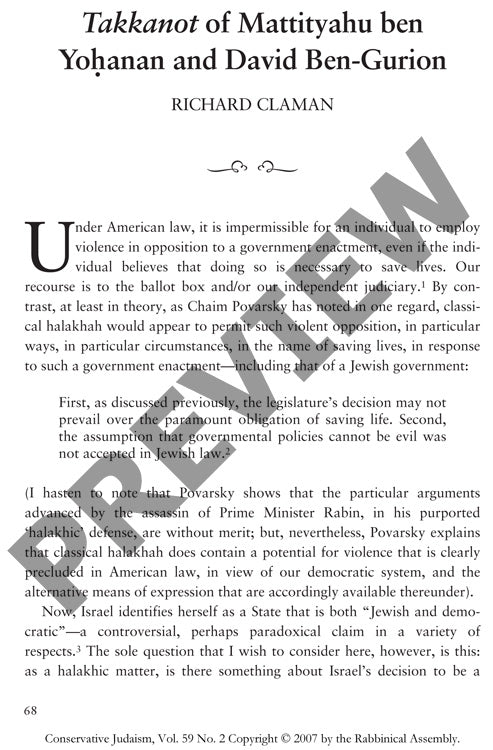Takkanot of Mattityahu Ben Yohanon and D
Couldn't load pickup availability
Can religiously-motivated violence against the modern State of Israel be justified through classical Jewish law? By examining a pivotal historical precedent - Mattityahu ben Yohanan's decree permitting Sabbath warfare during the Maccabean revolt - this analysis challenges contemporary arguments for religious opposition to Israeli democracy. Through critical historical methodology and detailed textual analysis of 1 and 2 Maccabees, the research refutes Gedaliah Alon's influential claim that a formal Sanhedrin existed during the Maccabean period, particularly his interpretation of 2 Maccabees 13:13 regarding Judah's consultation with elders. Instead, Mattityahu's innovative decree emerged from political leadership rather than religious authority, establishing a crucial model for halakhic adaptation through political determination. Drawing parallels between this historical precedent and Israel's 1948 Declaration of Independence, the analysis demonstrates that Israel's democratic founding should constitute a modern takkanah with equivalent halakhic force. Alternative frameworks, including David Golinkin's arguments regarding dina de-malkhuta dina and medieval kahal precedents, prove insufficient to address the theoretical foundations of religiously-motivated violence. The evidence establishes that Israel's democratic character, as articulated in its founding declaration, carries halakhic authority that fundamentally precludes violent opposition to democratically-enacted legislation based on classical religious principles.

More Information
-
Physical Description
-
Publication Information
Published 2007
ISBN
-
Publication Credits
Richard Claman

